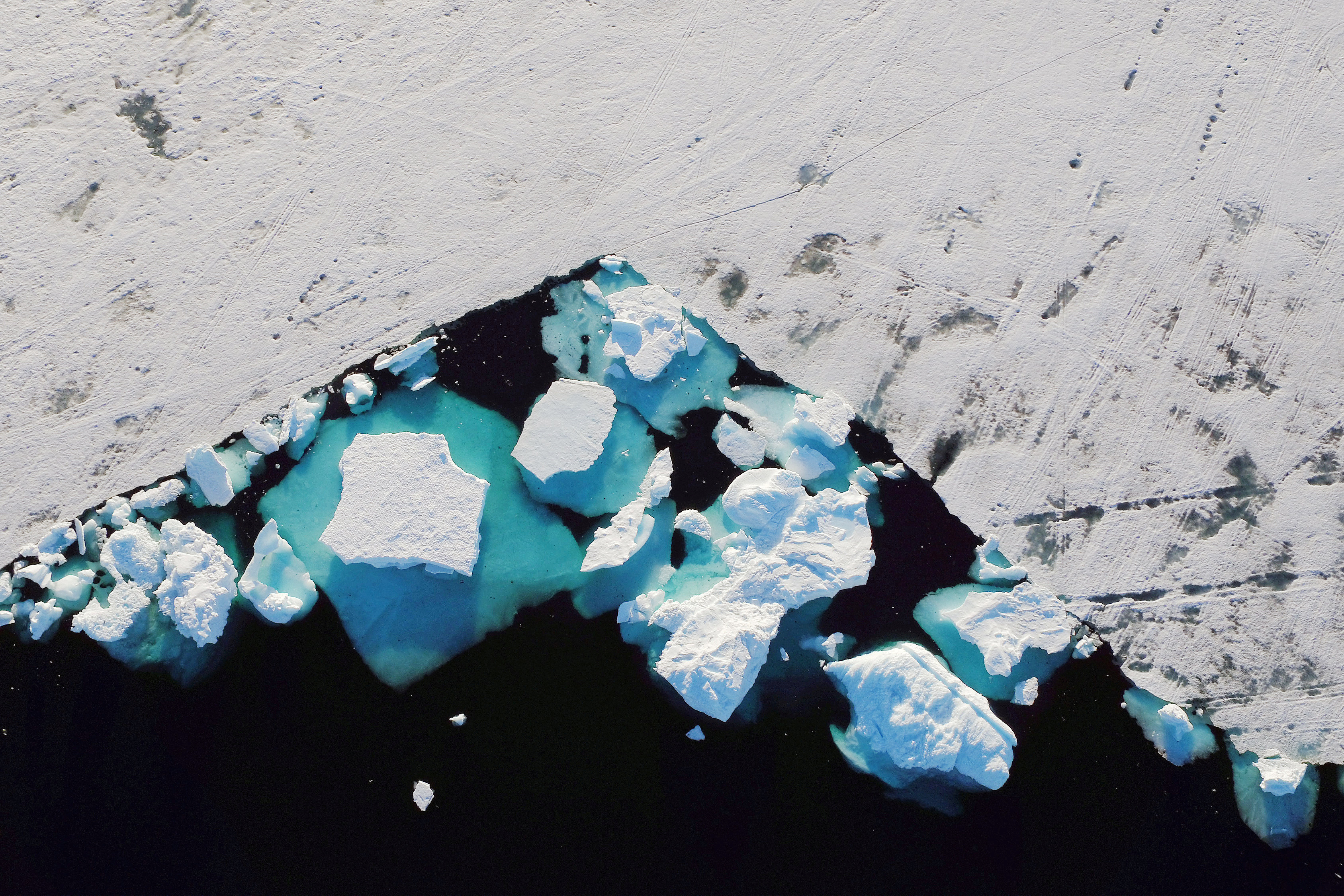Innovation for a new Arctic
OPINION: Solving the challenges of a changing Arctic will require new approaches.

Rapid environmental and social changes in the Arctic region have enormous local and global impacts, from endangering indigenous communities to increasing global sea level. Public and private innovation in policy and action is needed by governments, businesses, and individuals in order to find enduring solutions for the many challenges resulting from rapid climate change. In response to this need, 24 Harvard Kennedy School students recently completed the new course “Policy and Social Innovation for the Changing Arctic” that challenged them to develop their own innovative and interdisciplinary solutions.
The course is the centerpiece of the Arctic Innovators Program, which is part of the Harvard Kennedy School’s broader Arctic Initiative launched in late 2017. One of its goals is to bring creative young scholars into the expanding international discussion of Arctic issues, both to educate them about this fast-changing region and its impacts on the rest of the globe and to equip them to contribute to developing and implementing sustainable solutions.
The 24 students admitted to the fall 2018 limited-enrollment course came from HKS, the wider Harvard University campus, MIT, and the Fletcher School at Tufts University. The course was co-taught by Kennedy School Professor John Holdren and Arctic Initiative Co-Director Halla Hrund Logadottir. As part of the course, the students had the opportunity to participate in the Arctic Innovation Lab hosted at the 2018 Arctic Circle Assembly in Reykjavík, Iceland in late October. The lab brings together scientists, policymakers, and technical experts from around the world to discuss new ideas and policy improvements that could contribute to solving Arctic problems. The students were part of a larger delegation from the Kennedy School’s Arctic Initiative that included faculty, fellows, and staff who organized several additional programs at the Arctic Circle Assembly.
Participation in the Arctic Innovation Lab provided a chance for students from HKS and four other universities — the Iceland School of Energy at Reykjavík University, the University of Greenland, the Fletcher School at Tufts University, and the University of Iceland — to present their ideas to experts, receive feedback, and further develop their proposed Arctic solutions. Harvard Kennedy School students and fellows have participated in the Arctic Circle Assembly since 2014, organizing the first Arctic Innovation Lab at the Assembly in 2016.
In coming weeks, students in the Arctic Innovators Program will share some of their ideas through a series of op-eds in ArcticToday. Some ideas are new; others build on existing approaches in various stages of development. This process has served the purpose of training a new generation of leaders equipped with knowledge of changes in the region and the solutions-oriented mindset needed to address them.
Among the innovative ideas are proposals to use technology to protect indigenous languages; finance permafrost thaw-resistant communities; monitor ocean currents to optimize new trade routes; preserve biodiversity of plants for the polar pharmacy; empower youth through citizen journalism; and use filmmaking as a catalyst for community engagement and conservation.
The Arctic Initiative is a joint project of the Environment and Natural Resources Program and the Science, Technology, and Public Policy Program at the Kennedy School’s Belfer Center for Science and International Affairs. The Initiative advances solutions for Arctic challenges by initiating new research; by convening policy makers, scientists, and politicians; and by educating a new generation of leaders knowledgeable about the rapidly changing Arctic and the implications for environmental, social, and economic systems around the globe.
Halla Hrund Logadottir is co-founder and co-director of Harvard Kennedy School’s Arctic Initiative. Cristine Russell is a senior fellow in Harvard’s Environment and Natural Resources Program and the Arctic Initiative.